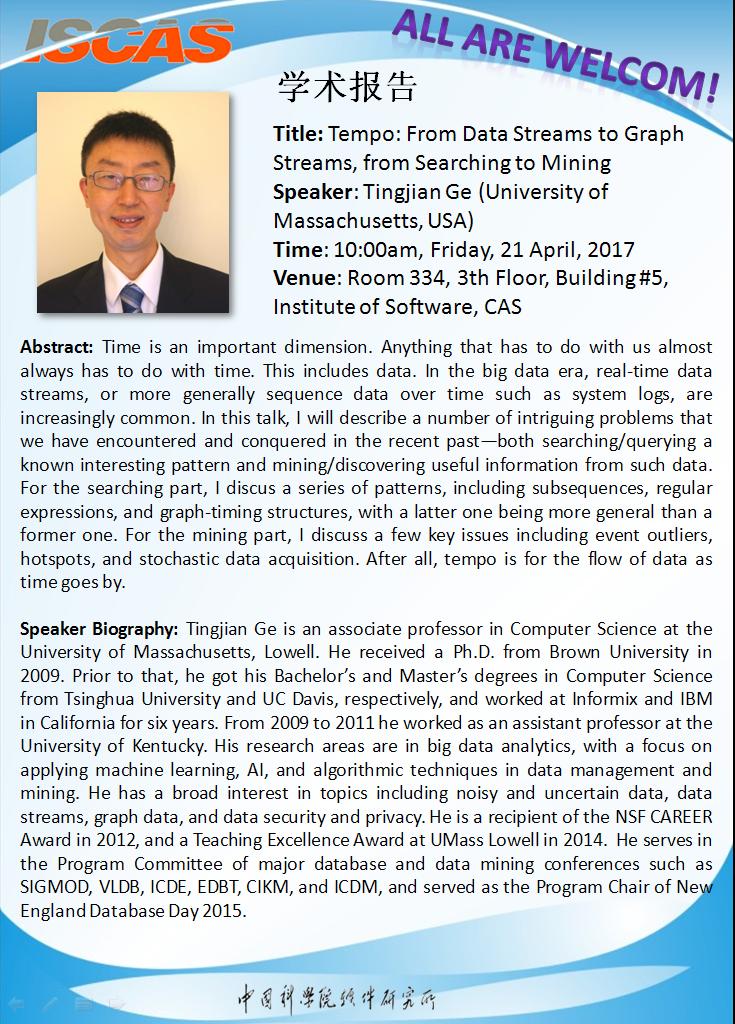[4-21]Tempo: From Data Streams to Graph Streams, from Searching to Mining
文章来源: | 发布时间:2017-04-17 | 【打印】 【关闭】
Speaker: Tingjian Ge (University of Massachusetts, USA)
Time: 10:00am, Friday, 21 April, 2017
Venue: Room 334, 3th Floor, Building #5, Institute of Software, CASAbstract: Time is an important dimension. Anything that has to do with us almost always has to do with time. This includes data. In the big data era, real-time data streams, or more generally sequence data over time such as system logs, are increasingly common. In this talk, I will describe a number of intriguing problems that we have encountered and conquered in the recent past—both searching/querying a known interesting pattern and mining/discovering useful information from such data. For the searching part, I discus a series of patterns, including subsequences, regular expressions, and graph-timing structures, with a latter one being more general than a former one. For the mining part, I discuss a few key issues including event outliers, hotspots, and stochastic data acquisition. After all, tempo is for the flow of data as time goes by.
Speaker Biography: Tingjian Ge is an associate professor in Computer Science at the University of Massachusetts, Lowell. He received a Ph.D. from Brown University in 2009. Prior to that, he got his Bachelor’s and Master’s degrees in Computer Science from Tsinghua University and UC Davis, respectively, and worked at Informix and IBM in California for six years. From 2009 to 2011 he worked as an assistant professor at the University of Kentucky. His research areas are in big data analytics, with a focus on applying machine learning, AI, and algorithmic techniques in data management and mining. He has a broad interest in topics including noisy and uncertain data, data streams, graph data, and data security and privacy. He is a recipient of the NSF CAREER Award in 2012, and a Teaching Excellence Award at UMass Lowell in 2014. He serves in the Program Committee of major database and data mining conferences such as SIGMOD, VLDB, ICDE, EDBT, CIKM, and ICDM, and served as the Program Chair of New England Database Day 2015.
